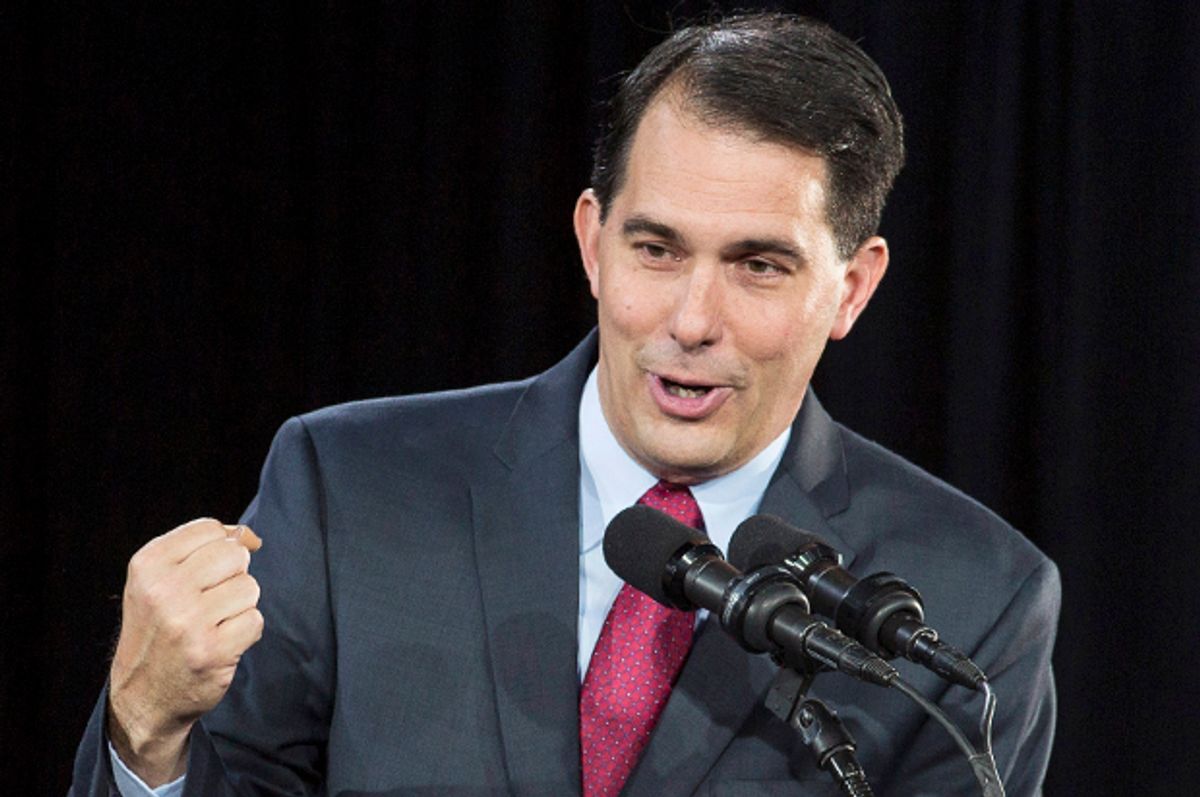Emboldened by Gov. Scott Walker's re-election victory and an expanded legislative majority, Wisconsin Republicans are poised to once again place their state at the center of the national debate over workers' rights.
Four years ago, Walker and the GOP legislature sparked massive protests with legislation that stripped public employees of collective bargaining rights and required state workers to increase their benefit contributions. Democratic attempts to scuttle the legislation ultimately proved unsuccessful, and Walker signed the legislation into law, making him a top labor target during a 2012 recall race and this year's midterms.
Walker ultimately prevailed in both contests, and his second term may well witness an expanded assault on organized labor. The next big battle? Conservative legislators and activists are pushing to make Wisconsin a so-called right-to-work state. Right-to-work laws ban contracts that require workers to pay union dues even if they aren't members of the union that's negotiating on their behalf. Dues-paying by non-members helps unions avoid a free rider problem whereby workers gain from union-negotiated benefits without paying into the union. By allowing non-members to avoid paying dues, right-to-work laws dilute the power of labor unions in collective bargaining.
The governor's signature 2011 anti-union law allowed public employees to skirt union dues, but the legislation envisioned by GOP legislators and groups like Wisconsin Right to Work would also apply to unions representing private sector workers.
Though State Assembly Speaker Robin Vos said this summer that right-to-work legislation wasn't a priority, he said last Monday that he was open to a legislative debate on the issue, after all. Senate Majority Leader Scott Fitzgerald is also amenable to right-to-work legislation. State Rep. Chris Kapenga, a Republican, said last week that he would introduce a right-to-work bill.
Publicly, the Walker administration is distancing itself from the right-to-work push. Spokeswoman Laurel Patrick told the Milwaukee Journal-Sentinel that jobs and the economy remained the governor's top priorities.
"Anything that distracts from that is not a priority for him," Patrick said.
Observers believe that Walker is wary of embracing right-to-work proposals due to fears that such legislation would set off another round of fierce protests and civil disobedience, potentially damaging the state's image and his prospects as a potential presidential candidate in 2016. Indeed, labor activists are vowing that any right-to-work measure will encounter concerted resistance.



Shares